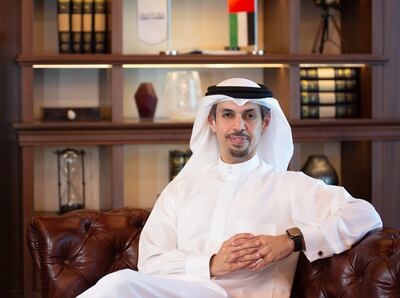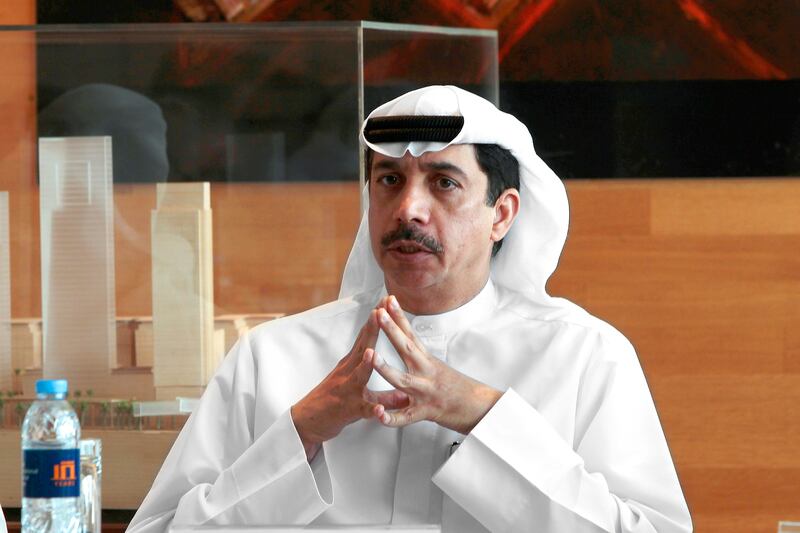Access to funding, expertise and collaboration between regulators and FinTech players will support innovation in the finance industry going forward, senior officials have said.
“The financial industry is undergoing a profound and unprecedented transformation powered by digital technologies and innovation that are reshaping payments, lending, insurance and wealth management,” Essa Kazim, governor of Dubai International Financial Centre, said on Tuesday.
Mr Kazim was speaking at DIFC FinTech Week, a two-day event for key players in the sector to discuss the future drivers of growth in financial services.
“Financial services will become more efficient, competitive, inclusive and decentralised,” Mr Kazim said.
Demand for digital payments and other FinTech services has grown during the pandemic as more people use online banking services and other contactless technologies to transfer money and pay for e-commerce transactions.
In the Middle East, the FinTech sector is undergoing rapid expansion. By 2022, more than 800 FinTech companies operating in different segments such as payments, InsureTech and cyber security are projected to raise more than $2 billion in venture capital funding to boost their growth, UAE lender Mashreq said in February, citing data from the Middle East Institute.
Globally, digital payments are expected to grow to $8.26 trillion by 2024, from $4.4tn in 2020, Statista said.
Access to funding is of paramount importance to start-ups, Mr Kazim said, citing how the DIFC’s FinTech Fund is helping such businesses and VCs by investing Dh1bn ($272 million) in innovative FinTech companies. The fund has made 20 investments to date, he said.
FinTech companies that have received this funding include roboadvisory wealth management firm Sarwa, cloud-based B2B employee benefits platform FlexxPay, Now Money and Go Rise, both financial services platforms for migrant workers.
“Most recently, we launched the region’s first venture debt, which provides an alternative to equity capital and a new funding option for start-ups and growth-stage companies without substantially diluting their existing shareholding structure,” Mr Kazim said.
Start-ups also need access to expertise, “which may have been previously too expensive”.
The DIFC’s venture studio platform, which was launched in April, is an initiative that helps start-ups to scale their businesses by providing legal and regulatory support, access to talent and offering shared services such as marketing, branding, design and engineering, Mr Kazim said.
“We also need to foster greater collaboration between banks, regulators and industry players, including start-ups who can deliver solutions for use cases,” he told people at the event. "By working together, we can create the future of finance here."
Meanwhile, banks and FinTechs need to increase collaboration to take the financial services industry forward, said Hamad Buamim, president and chief executive of Dubai Chamber of Commerce.
“Big organisations find it very difficult to disrupt their business model and operations,” Mr Buamim said. "This is known as the innovators’ dilemma.
“Many banks start getting into incremental innovation or cosmetic innovation. FinTechs don’t have this risk to deal with, they can disrupt and have the ability to come to the market faster.”
New start-ups are bringing sophisticated technology to the market in the fields of FinTech, artificial intelligence and blockchain, and Dubai is serving as a launch pad for global entrepreneurs to build and scale their business across the Middle East, Africa and South Asia region, Mr Buamim said.

FinTech start-ups, in particular, have become a catalyst for creating and developing an innovation ecosystem in the region, he added.
“There is no denying that the future of business in Dubai is digital,” Mr Buamim said.
“Policies and initiatives are being put in place to accelerate the growth of Dubai’s digital economy, develop smart infrastructure and enhance digital readiness to ensure business continuity.”
The UAE Digital Economy Strategy aims to increase the digital economy’s contribution to the country’s gross domestic product to about 20 per cent in the next 10 years from 10 per cent today.
Highlighting new incentives for start-ups such as the introduction of different types of visas and 100 per cent business ownership, Mr Buamim said the chamber was also creating new projects to cater to the changing needs of digital entrepreneurs.
“The chamber recently did a series of roadshows across Africa, South Asia and Europe to attract more scale-ups and start-ups to Dubai, with a particular focus on FinTech,” he said.
“We recently created the Dubai Digital Assets Business Group to represent this sector to ensure that the government and society understand their needs. We plan to have more such specialised groups to support the digital economy and ensure sustainable growth of the FinTech sector.”
He highlighted the Chamber’s restructuring last year and the creation of the Dubai Chamber for Digital Economy as testament to the importance of this sector.
More than 1,000 people, including FinTech innovators, investment firms, banks, policymakers and service providers, are attending the event in Dubai.







